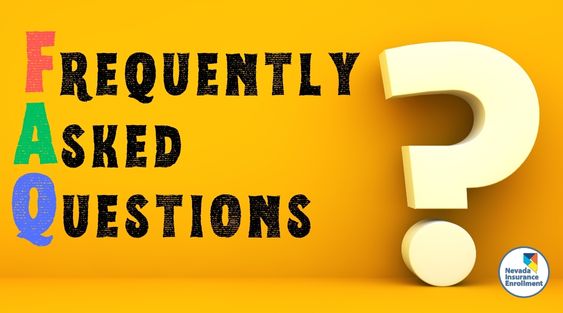How These Notices Help Nevada Employees Explore Marketplace Coverage
Health insurance notices from employers, officially called Notices of Coverage Options, are documents required under the Affordable Care Act (ACA). These notices explain the Health Insurance Marketplace (sometimes called the “Marketplace”) and guide employees on how to explore alternatives to employer-sponsored coverage.
According to the U.S. Department of Labor, employers subject to the Fair Labor Standards Act (FLSA) must provide these notices to all new employees within 14 days of their hire date. In Nevada, employees are directed to Nevada Health Link, the state’s official Marketplace, where they can review coverage options and check eligibility for financial assistance.






Why Employers Must Provide Marketplace Notices
The ACA requires these notices so that employees are aware of their right to explore health insurance outside their workplace plan. Notices give employees clear, standardized information to compare employer coverage with Marketplace options.
- Nevada Health Link emphasizes that Marketplace plans may provide more affordable coverage, especially if premium tax credits (subsidy) are available.
- The U.S. Department of Labor confirms that while employers must distribute notices, there is currently no fine for failing to do so.
This requirement promotes transparency, ensuring that every worker has access to unbiased information about Nevada Health Link and potential cost-saving options.
Who Receives Health Insurance Notices?
Employers covered by the FLSA must give these notices to:
- All new employees within 14 days of hire, regardless of whether they qualify for the employer’s health plan.
- Both part-time and full-time workers.
- Employees at nearly all businesses with one or more employees.
Notices are not required for dependents or non-employees, since the law focuses on informing workers directly about Nevada Health Link coverage.
continued below ⇓
Recent Posts




Does Towing and Roadside Assistance Impact Insurance Premium?
Towing and roadside assistance is an auto insurance policy add-on that provides coverage if you get stranded or your car breaks down. This auto insurance coverage helps you handle costs like locksmith services, towing, battery service, gas delivery, and more.




Have You Been Offered Health Insurance At Work?
New rules to the American Rescue Plan Act, stating that employees that are offered “affordable” health insurance by their employer, may now qualify for a subsidy!




Automobile Rental Insurance When Renting A Car
Most drivers who have an auto insurance policy with collision and comprehensive coverage, decent health insurance, and homeowners or renters’ insurance can save their money by foregoing additional rental coverage.
Health Insurance Quotes
1). By Phone
(702) 898-0554
2). Online Quote
3). In Person
4260 W. Craig Road #150-A
N. Las Vegas, NV 89032
Health Insurance Notices from Employers
-
How Do Health Insurance Notices Help Employees?
Health insurance notices from employers, officially called Notices of Coverage Options, are documents required under the Affordable Care Act (ACA). These notices explain the Health Insurance Marketplace (sometimes called the “Marketplace”) and guide employees on how to explore alternatives to employer-sponsored coverage. Read More: https://www.nevadainsuranceenrollment.com/health/employer-health-insurance-notices/ -
Does my employers have to give me paperwork for health insurance options?
Yes. According to the U.S. Department of Labor, employers subject to the Fair Labor Standards Act (FLSA) must provide these notices to all new employees within 14 days of their hire date. In Nevada, employees are directed to Nevada Health Link, the state’s official Marketplace, where they can review coverage options and check eligibility for financial assistance.Why Employers Must Provide Marketplace Notices
The ACA requires these notices so that employees are aware of their right to explore health insurance outside their workplace plan. Notices give employees clear, standardized information to compare employer coverage with Marketplace options.- Nevada Health Link emphasizes that Marketplace plans may provide more affordable coverage, especially if premium tax credits are available.
- The U.S. Department of Labor confirms that while employers must distribute notices, there is currently no fine for failing to do so.
-
Who Receives Notices of Coverage Options?
Employers covered by the FLSA must give these notices to:- All new employees within 14 days of hire, regardless of whether they qualify for the employer’s health plan.
- Both part-time and full-time workers.
- Employees at nearly all businesses with one or more employees.
-
What Information Is Included in Notices of Coverage Options?
A typical health insurance notice from an employer provides:- An explanation of what the Marketplace is and how to access it (in Nevada, through Nevada Health Link).
- Guidance on premium tax credits, including eligibility if the employer’s plan:
-
- Covers less than 60% of allowed costs, or
- Costs more than 9.04% of household income in 2025.
-
- A reminder that choosing a Marketplace plan may mean losing the employer’s contribution toward premiums, which could also affect tax advantages.
-
Why You Should Read the Health Insurance Notices From Your Employer
Marketplace notices empower employees by providing consistent, easy-to-understand details. For example:- Nevada Health Link publishes open enrollment dates (November 1 to January 15). Coverage usually starts January 1 or February 1, depending on when enrollment is completed.
- Special enrollment periods are also available for qualifying life events, such as job loss, marriage, or birth of a child.
- The Nevada Division of Insurance ensures these notices remain accurate and aligned with federal rules.
- Explore Nevada Health Link plans during open enrollment.
- Determine whether they qualify for subsidies.
- Compare total costs between employer-sponsored and Marketplace options.
- Understand the trade-off of losing employer contributions when selecting a Marketplace plan.
What Information Is Included in Marketplace Notices?
A typical health insurance notice from an employer provides:
- An explanation of what the Marketplace is and how to access it (in Nevada, through Nevada Health Link).
- Guidance on premium tax credits, including eligibility if the employer’s plan:
-
- Covers less than 60% of allowed costs, or
- Costs more than 9.04% of household income in 2025.
-
- A reminder that choosing a Marketplace plan may mean losing the employer’s contribution toward premiums, which could also affect tax advantages.
These details help employees understand how Marketplace coverage compares to their workplace plan.
How Notices Support Informed Decisions
Marketplace notices empower employees by providing consistent, easy-to-understand details. For example:
- Nevada Health Link publishes open enrollment dates (November 1 to January 15). Coverage usually starts January 1 or February 1, depending on when enrollment is completed.
- Special enrollment periods are also available for qualifying life events, such as job loss, marriage, or birth of a child.
- The Nevada Division of Insurance ensures these notices remain accurate and aligned with federal rules.
The Kaiser Family Foundation has found that employees often rely on agents for help interpreting eligibility for subsidies, comparing premiums, and choosing between employer and Marketplace plans. Notices create the foundation for these decisions. Working with a licensed health insurance agent does not increase costs or add fees to your premium. Agents are paid by the insurance carriers, so employees gain the benefit of professional guidance, experience, and step-by-step support at no extra cost. With expert help available for free, it raises the question – why navigate these complex choices alone?
Search this website
Our Most Popular Pages
By page visits (this month)
#1 - Health Insurance Subsidy Chart
#2 - Health Insurance
#3 - Health Insurance WITH a Subsidy
#4 - Insurance Blog
#5 - Request a Quote
Relation to Other Health Insurance Documents
Health insurance notices from employers are different from other plan materials. For example:
- Summary of Benefits and Coverage (SBC): Explains the details, costs, and coverage of a specific health plan.
- Marketplace Notices: Explain that Marketplace options are available and may include subsidies.
While an SBC is plan-specific, a Marketplace notice is designed to direct employees to Nevada Health Link for a broader look at available coverage and financial assistance. Both documents are important for making an informed choice.
Limitations of Marketplace Notices
Although valuable, these notices do not include:
- Specific premiums or deductibles for the employer plan.
- Provider networks for Marketplace plans.
- Exact subsidy eligibility, which is officially determined through Nevada Health Link.
-
- However, Nevada Insurance Enrollment agents can use federal charts and guidelines to estimate eligibility and help you understand what level of assistance you may qualify for. For a quick estimate, visit our subsidy estimation page.
-
Employees should use notices as a starting point, then review additional documents like SBCs or consult licensed health insurance agents for complete comparisons.
Why Employees Should Review Health Insurance Notices
Taking time to review these notices can help employees:
- Explore Nevada Health Link plans during open enrollment.
- Determine whether they qualify for subsidies.
- Compare total costs between employer-sponsored and Marketplace options.
- Understand the trade-off of losing employer contributions when selecting a Marketplace plan.
How to Use Marketplace Notices Effectively
To get the most out of a health insurance notice from your employer:
- Read It Quickly: Review within 14 days to prepare for upcoming enrollment deadlines.
- Visit Nevada Health Link: Check available plans, premiums, and subsidy options.
- Compare Coverage: Evaluate whether the employer plan or Marketplace plan is more cost-effective.
- Ask for Help: Reach out to your employer, Nevada Health Link, or a licensed Nevada Insurance Enrollment agent for clarification.
The Role of Health Insurance Notices in Nevada
In Nevada, these notices play a key role in connecting employees to affordable coverage. Regulated by the Nevada Division of Insurance, they ensure workers are aware of open enrollment periods, subsidy opportunities, and the flexibility of Nevada Health Link. Employers can deliver notices either on paper or electronically, as long as employees receive them promptly.
How Nevada Insurance Enrollment Helps with Employer Health Insurance Notices
Employer health insurance notices provide the first step in understanding Marketplace coverage. But navigating your options often requires more explanation.
Nevada Insurance Enrollment simplifies the process by:
- Breaking down what the notice means in plain language.
- Comparing employer-sponsored and Marketplace health plans side by side.
- Helping you determine whether you qualify for subsidies through Nevada Health Link.
Our licensed agents can guide you through your health insurance choices so you feel confident selecting the plan that best fits your needs and budget.
References
The following reputable sources provided information for this article:
-
Nevada Health Link
-
Healthcare.gov
-
Nevada Division of Insurance
-
U.S. Department of Labor
-
Kaiser Family Foundation
Why These Sources Were Used
Topic/Fact: Employer Notice Requirements
Source: U.S. Department of Labor
Verification: Confirms FLSA-covered employers must provide Marketplace notices within 14 days of hire.
Topic/Fact: Marketplace Details and Enrollment Periods
Source: Nevada Health Link; Healthcare.gov
Verification: Confirms open enrollment dates and explains Marketplace plan options and subsidy eligibility.
Topic/Fact: Subsidy Eligibility and Decision-Making
Source: Healthcare.gov; Kaiser Family Foundation
Verification: Provides details on premium tax credit thresholds and explains how employees rely on notices and agents to understand coverage.
Topic/Fact: State Oversight
Source: Nevada Division of Insurance
Verification: Confirms Nevada regulates notices to align with ACA requirements and ensure transparency.
